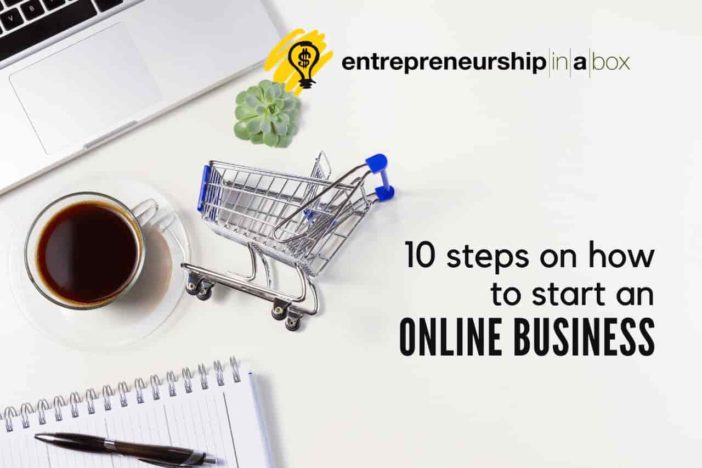Let’s admit it. There has never been a better time to start an online business. The start-up costs are lower than ever, while the web is littered with information on nearly everything you’d like to know about running an online business.
Are you looking to start a small business online? This post is meant for you. Here, we will show you the 10 key steps to follow for a profitable business.
Let’s dive straight in!
1. Choose the niche for your online business
This will probably sound like a cliché to you but choosing a niche for your business is possibly the most important decision you will make when starting. A niche is simply an area of interest that you wish to pursue, usually based on your strengths/area of specialization or education. A few examples of niches include weight loss, carpentry, automotive, etc. You can niche down even further to set up your business around weight loss for weaning mothers, kitchen furniture, or car interior. The purpose is to give your online business a direction so that you’re not a jack of all trades, leading to incompetence.
2. Choose your business model for your online business
Having decided on what you will be selling in your business, it’s now time to choose how you will monetize your website (which is where you will conduct your online business).
Today, you can adopt numerous monetization models, including advertising, affiliate marketing, subscription, and freemium business models.
Advertising is the most popular and possibly the easiest model to implement online today. Just as the name suggests, it entails placing adverts for other businesses on your website and charging them for exposure and promotion. On the other hand, affiliate marketing is a form of advertising where you are paid commissions for products and services sold through your unique affiliate links.
As for the subscription model, readers pay to access part or all of the content on your site, usually through a one-off charge. Finally, the freemium model (free + premium) involves giving readers free access to some of your content and asking them to pay for extra premium features.
Related: How to Start a Streaming Music Business: Building an App Like Spotify
3. Choose the preferred name of your online business
A business name plays a crucial role in the overall branding of your business. For this, it pays to take some time to think over and choose a unique and memorable name. While at it, confirm that the name doesn’t have any existing trademark issues tied to it. Otherwise, you risk facing trademark opposition or even infringement. Finally, your name should comply with your specific state law requirements, especially LLCs or corporations.
4. Secure your domain name
So you now have a business name. What next? Naturally, you need to register a domain name that matches your online business name. So, if the name is not available for registration at any domain name registrar, it could mean going back to the drawing board searching for another more fitting business name.
✋ Warning
5. Buy hosting and go live
Supposing you found the right domain name and have already purchased it. The next step is to choose a reliable hosting service provider to enable your site to go live. Mangomatter wrote this guide on UK businesses’ best hosting services. Check it out and choose a suitable host for your small online business.
6. Publish high-quality content
With your site now hosted and ready to be broadcasted to the world, it’s time to develop content and begin attracting visitors. First, start with the pillar pages, aka the homepage, about, services, contact us, and any other relevant pages, depending on your business model. While at it, be sure to follow the basic rules of copywriting. These include
- writing compelling headlines,
- describing the problems that your product and services help to solve,
- placing testimonials strategically within the copy and creating urgency.
7. Add a blog
Having a blog on your site means you can keep creating evergreen content that readers will love and use to solve their problems. In return, they will start seeing you as an authority in your field, which is good for building reputation and brand positioning. What’s more, this content can help you rank higher on search results. In such a way, you can pull even more potential customers to your website.
8. Launch social media profiles
Social media is no longer meant to kill boredom or meet friends only. At least not when you’re targeting it for online business growth. Today, social media platforms serve as free and highly effective marketing tools. But, they can transform your online business fortunes when used properly.
To get the most out of social media, be sure to specialize in only a few channels and invest your energy and time in them alone. This could be Facebook, Twitter, Pinterest, Instagram, etc. Consider using paid ads or run promotions and giveaways to boost engagement and reach, especially when starting.
9. Start building an email list
Email marketing remains to be one of the most rewarding forms of marketing. Indeed, you need to have it in your plans right from when you launch your site. So, start by creating a lead magnet or adding an opt-in form to help you collect emails. When done right, email marketing can be a game-changer in the success of your online business.
10. Track and measure growth
Try to gather as much data from your website as possible. This will enable you to visualize the direction your online business is heading in. The data includes tracking the number of web visitors, keywords ranking on search results, traffic sources, and email open and click-through rates, to name a few. You can use both free and paid tools to collect this data with Google Analytics and email autoresponder tools offering a good place to start.
Are you planning to start an online business? What has been your biggest impediment to implementing that idea you’ve been thinking about for so long? Share with us – we’re here to help you achieve your goals.





